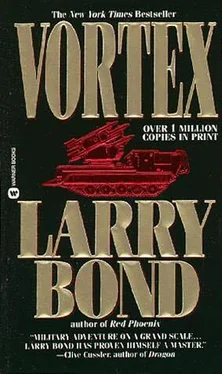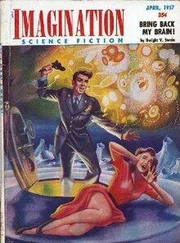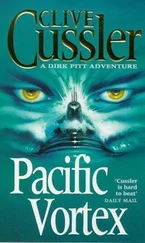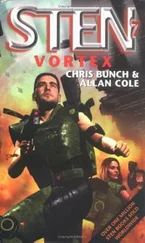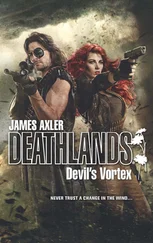Maj. Daan Visser stood high in the Rooikat’s open commander’s cupola.
Dark, tinted goggles and a fluttering orange scarf protected his eyes and his mouth from the sand and acrid smoke. The long barrel of a cupola-mounted machine gun bounced and rolled beside him.
For the moment, Visser and his crew were effectively alone on the battlefield. Swirling smoke and dust had so cut visibility that the seven other Rooikats and Elands of his two troops were out of sight and out of command. And they’d left the supporting infantry far behind. From the sounds echoing through the haze, the foot sloggers were still busy mopping up scattered resistance.
Visser grinned beneath his scarf. Let Kruger’s poor, cautious sods worry about routing out every last sniper. He and his lads would show them the right way to win this war. Smash a hole in the Swapo lines, pour through, and then run the survivors into the ground. That was the road to victory.
And to glory.
Forty meters ahead, a fleeing BTR-60 blundered out of the smoke into the
Rooikat’s path.
“Gunner, target at one o’clock! “
The AFV’s overlarge turret whined, spinning thirty degrees to the right.
“Acquired!” The gunner’s voice reflected Visser’s own exultation. Nothing was easier than shooting at people unable or unwilling to shoot back.
“Fire!” The turret lurched backward as its main gun fired, easily absorbing the sudden shock. A 76mm armor-piercing shell ripped the enemy APC open from end to end in a spray of white-hot fragments and fuel.
Seconds later, the Rooikat raced by the BTR’s shattered, blazing hulk, passing so close that Visser could feel the heat of the flames on his face.
Another kill. Another trophy.
Something moved in a dense patch of brush off to his left. He spun round in the open cupola, eyes searching for the enemy vehicle that would be his
Rooikat’s next victim.
It wasn’t a vehicle. Just a lone infantryman who’d risen from the tangle of thorns and tall grass in a single, fluid motion-with an RPG-7 at the ready.
Time seemed to slow.
Visser noticed something odd. The man was light skinned, not a black. The grenade-tipped muzzle of the RPG swung left, tracking the still-moving
Rooikat.
Oh, my God. Visser clawed frantically for the machine gun mounted next to him, ice-cold fear surging upward to
replace elation. If he could just swing the MG around in time, he’d cut the swine in half…. The foot soldier fired his RPG at point-blank range. Trailing flame, the 85mm rocket-propelled antitank grenade flew straight into the side of the
Rooikat’s lightly armored turret and exploded.
In a strange sense, Maj. Daan Visser was lucky to the end. The blast killed him instantly. His three crewmen weren’t so fortunate. They burned to death in the fire that swept through the Rooikat’s mangled turret and hull.
20TH CAPE RIFLES
Commandant Kruger looked out across a valley unloved by nature and now ravaged by man.
Burning vehicles spewing smoke dotted the battlefield some alone, others in small clusters. Bodies littered the ground near each wrecked vehicle. Brush fires set by mortar rounds and exploding fuel tanks crackled merrily, punctuated by short, sharp popping sounds as the fires swept over dead or wounded men carrying ammunition.
Medical teams roamed the valley, searching for men who could still be saved. Overcrowded ambulances were already wending their way south from the battalion aid station transporting serious cases to the evac hospital set up in Rehoboth. Some were bound to die on the sixty-kilometer trip.
Technicians and mammoth tank recovery vehicles clustered around some of the wrecks-preparing to drag away any that could be repaired. Still more quartermaster corps units crisscrossed the battlefield, collecting the individual weapons rifles machine guns, and RPGs—dropped by both sides.
Other men stumbled or were prodded toward the rear with their arms raised high in surrender. Small groups of prisoners being driven south at bayonet point. Cuban prisoners.
Kruger frowned. The presence of Cuban. motor rifle units explained the stiff resistance his men had faced, but it raised another even more troubling issue. South Africa’s intelligence services had claimed that a shortage of strategic transport would make it impossible for Cuba to interfere with Operation Nimrod. It didn’t take a genius to see that they’d been dead wrong.
The question was, how many Cubans were already in Namibia and how fast were they arriving?
Footsteps crunched on the sand behind him. He turned slowly and saw the short, stocky, grim-faced officer who’d replaced Visser.
“Well, Captain?”
The other man swallowed hard, obviously still reluctant to believe what he had to report.
“Scarcely half the squadron is ready for action. Two
Rooikats and an Eland are total write-offs. Two more need major repair.”
Kruger nodded. The casualty figures tallied precisely with his own preliminary estimate. Visser’s idiotic cavalry charge had done serious damage to the enemy, but it had also wrecked his own force. And when added to the serious losses suffered by B Company, that spelled big trouble for the 20th Cape Rifles.
They’d driven the Cuban force back several kilometers, but the victory had been bought at too high a price. The battalion’s attached armored units needed time for rest and repair. His infantry companies were thoroughly disorganized and urgently needed replacements for those who’d been killed or wounded. And worst of all, Hennie Mulder’s heavy mortars were almost out of smoke rounds and were low on everything else, including HE.
Kruger swiveled north, his eyes narrowed-studying the thin asphalt strip of
Motor Route I as it wound its way higher and higher into the rugged Auas
Mountains. Every instinct and every ounce of experience told him that the days of lightning-swift advances and easy glory were over. One afternoon’s fiery engagement had blunted the SADF’s headlong plunge into Namibia.
Resolute and well-equipped defenders could hold that mountain pass with relative ease-parrying attacks launched on what would become an increasingly narrow front. The war would become a war of attrition-a war in which soldiers sold their lives for a few square kilometers of relatively worthless ground.
One thing was clear. If South Africa wanted Windhoek, it was going to have to pay a high price. A price Henrik Kruger wasn’t sure his country could afford.
8TH MOTOR RIFLE BATTALION
High on a boulder-strewn hill six kilometers closer to Windhoek, Senior
Capt. Victor Mares sat slumped against the side of his BTR-60, surrounded by the remnants of his command group. A rust-brown bloodstain spread across his battle dress served as a reminder of his dead radioman-cut down by South African MG fire during the last frantic rush to board the APC and escape.
What was left of his two companies-five battle-scarred BTRs and a handful of ragged infantry-held temporary firing positions covering the road. The
Cuban captain doubted whether they’d last more than five minutes against a renewed South African attack. The 8th Motor Rifle Battalion had been decimated.
Oddly enough, though, the South Africans seemed in no hurry to press their advantage. Maybe they’d taken more damage than he’d realized. Maybe they were overconfident. Maybe they were retreating to try another route through the mountains. Mares was just too damned tired to care. Sleep crept up, filtering in through a nervous system already drained by the excitement and sheer terror of battle.
“Captain!”
Mares sat bolt upright and stared at the young lieutenant scrambling frantically up the hill toward him.
“Captain! They’re here! They’re here!”
Читать дальше
